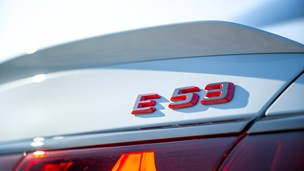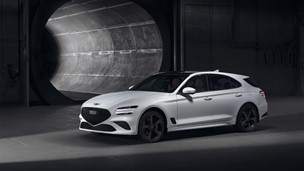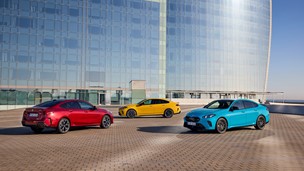It’s fair to say that SEAT is kind of on a roll at the moment. It used to be one of the most overlooked and niche members of the Volkswagen Group, but with a string of great models currently on sale and the success of the new Ateca SUV, it’s brought itself bang into the mainstream and its cars are now just as desirable as anything else VW makes.
Earlier this year, the popular Leon hatchback became the latest SEAT to get an update, with a few choice tweaks like new bumpers, all-round LED lights and a few interior updates along with the option of an all-new top-spec trim.
The idea is to retain the Leon’s handsome, sharp looks and sporting-esque demeanour while making it just a bit more up-to-date and just a bit more competitive with best-in-class cars that would have once seemed a step above it.
Interior and equipment
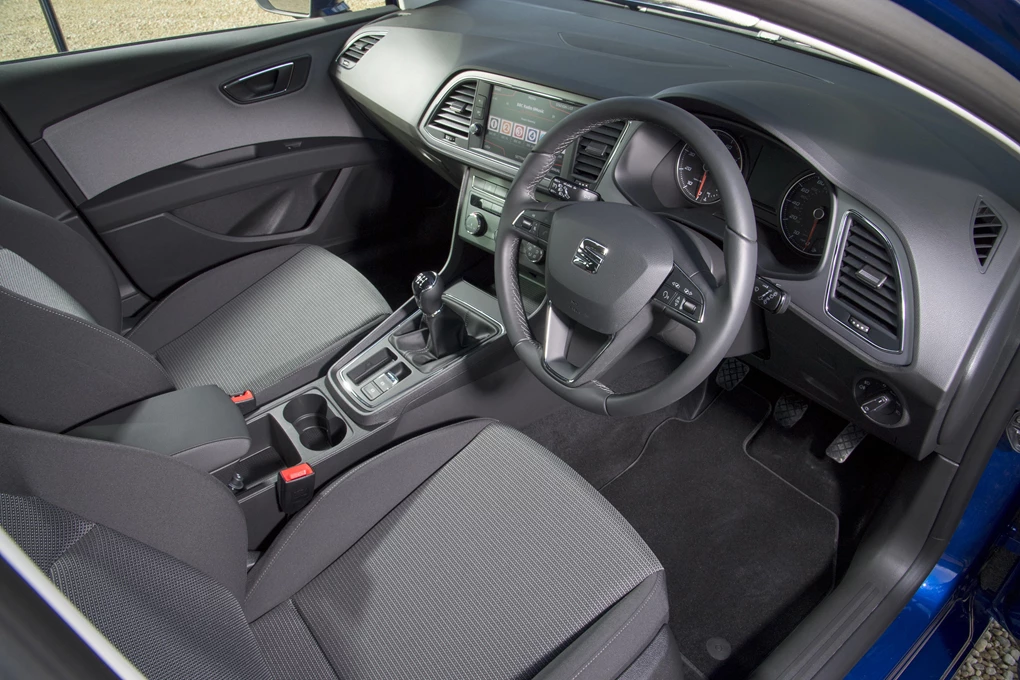
Inside, the Leon features a cabin that’s suitably stylish to sit in. It’s probably best described as smart rather than plush, as there are some harder plastic materials used lower down in the cabin, but everything you interact with at eye level is high quality, soft to the touch and seems well screwed together.
It’s very obviously a Volkswagen Group car in design, with its layout near identical to the likes of the Golf or Octavia, both of which the Leon shares much of its underpinnings and components with, but while it could definitely be accused of being a bit dull, it’s not totally a bad thing.
VW’s engineers have nailed the ergonomics, for example, with controls that are easy to reach and to use, while the driving position is spot on and there’s lots of handy little storage solutions dotted around as well like large cup holders and grippy rubber-bottomed cubbies for holding loose items.
Five trims are available with the new Leon: S, SE Technology, SE Dynamic Technology, FR and the new range-topping XCELLENCE. Priced from around £22,000 it’s roughly the same price as the FR, but swaps all the sporty gear for some more upmarket bits and bobs inherited from the Ateca SUV.
That means part-leather seats, fancier vent surrounds, plus a handy wireless phone charging mat, automatic lights and wipers and VW’s rather excellent eight-inch touchscreen infotainment system.
The touchscreen features integrated kit like sat-nav, Bluetooth connectivity, plus Apple CarPlay and Android Auto, while the car also comes with cruise control and parking sensors at the front and rear. A rear-view camera doesn’t come standard on any trim, however, which would be handy given the slim rear window and chunky C-pillars which impede visibility. Instead, it’s a £220 option on higher trims.
As before, the Leon is available either as a five-door hatchback, a three-door SC hatch or the ST estate depending on your needs, but we reckon that the standard five-door is probably the best all-round option.
Given that it shares a platform with the likes of the Golf, Octavia and A3 dimensions, the Leon has similar amounts of space inside with plenty of leg, head and shoulder room. Be aware, however, that there’s a significant transmission hump in the rear which will impede legroom for middle passengers, while the car lacks a flip-down armrest or cupholders in the back.
Still, the boot is identical in size to the Golf with an impressive 380 litres with the rear seats up that’ll easily hold a weekly shop or a few suitcases. Fold the rear seats down and there’s a maximum of 1,210 litres of space, while the boot also features numerous lashing points for tying down cargo.
Performance
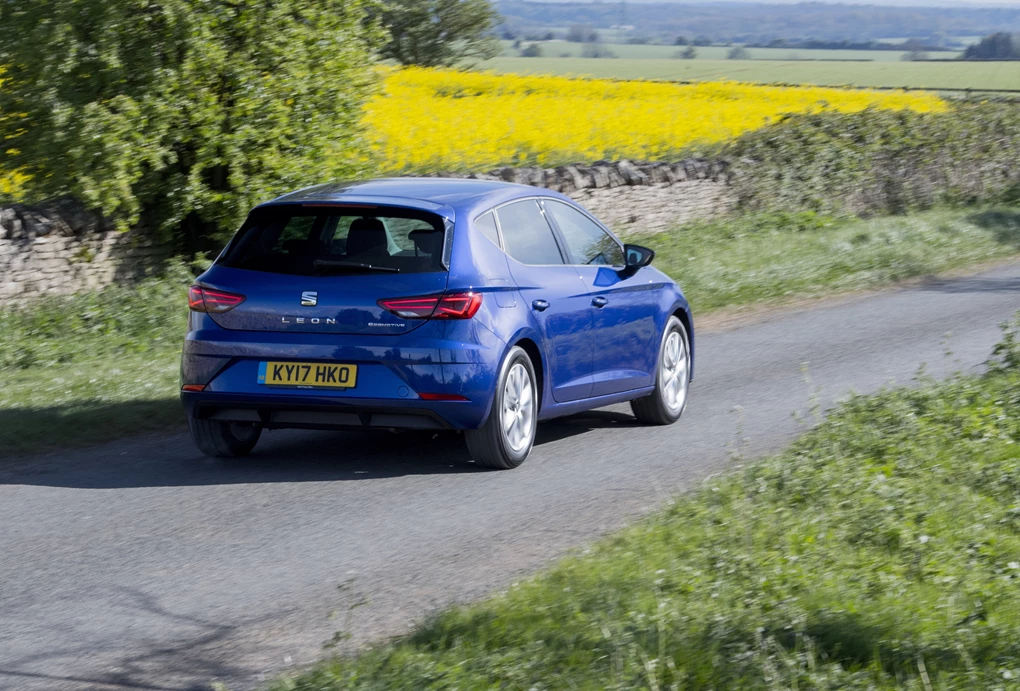
There’s loads of different engine options available with the new Leon range, from entry-level 1.2-litre and 1.0-litre petrols that are great if you want something that’s cheap to tax and cheap to run, all the way up to the 296bhp 2.0-litre petrol available in the Cupra hot hatch.
If, however, you want something that’s got a bit of go, but that’s good for long-distance driving and also relatively easy on the pocket, you’ll likely want to consider either the 113bhp 1.6-litre diesel or the 2.0-litre diesel which is available with either 148bhp or 181bhp.
It’s the 148bhp 2.0-litre we tested, and although it’s not the more powerful version we found it to be more than punchy enough for the majority of everyday driving. There’s plenty of torque and low-end pull, which is enough to get the Leon from 0-62mph in a rather spry 8.4 seconds.
Like many diesel engines, it can get a little gruff and noisy the higher up in the rev range you go, but it’s quiet and settled enough when you’re cruising along. As standard, the Leon comes with a six-speed manual gearbox which is slick and smooth to use, however there is also the option of a six-speed DSG automatic if you’d prefer that.
Ride and handling
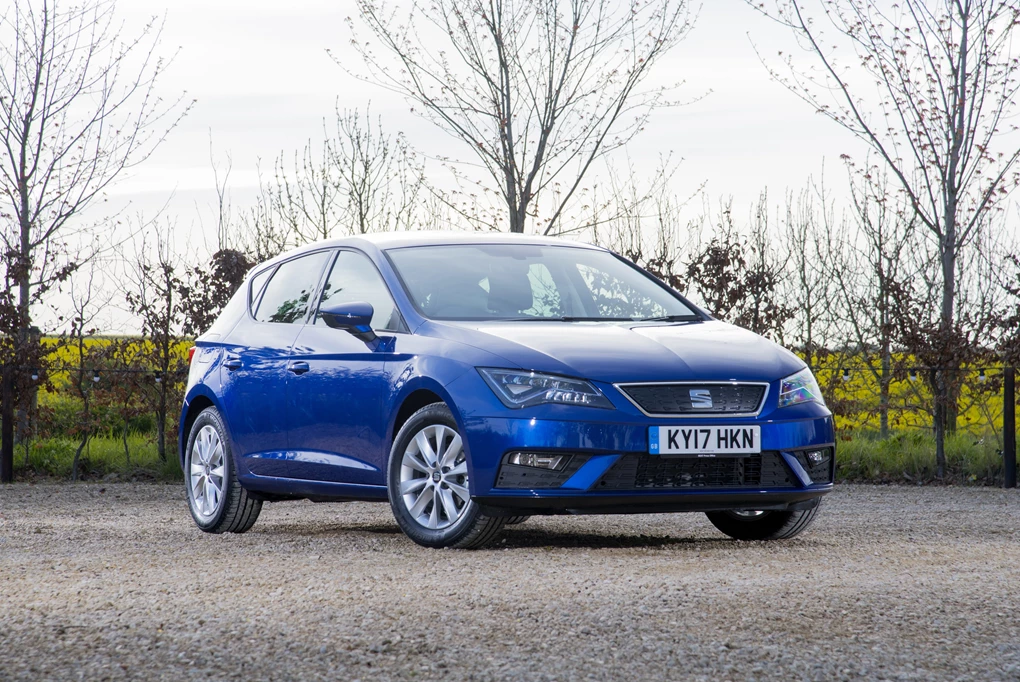
Given that the Leon has always been positioned as a slightly edgier alternative to more everyday hatches, even the standard models come with suspension setups that are decidedly more on the firm side of the fence which means that they all handle really well out of the box.
The healthy performance of the 2.0-litre diesel is matched with sharp handling, and the Leon resists body roll very well and has plenty of grip, clinging to the corners even when you start to push it a little harder. The brakes have plenty of stopping power, while the steering is accurate, well weighted and nicely judged overall.
However, the trade-off is that the Leon is a little less comfortable and a little less refined than other cars in its class, notably the likes of the Golf and the A3. The firm suspension means that bumps, potholes and irregularities in the road surface are transmitted up into the cabin, though the comfy seats do go some way towards muting the worst of it.
The chances are as well, that if you’re interested in the Leon then you’re probably looking for something a little sportier than the average hatch, and the Leon is one of the more fun family hatches currently on the market regardless of engine choice.
Cost
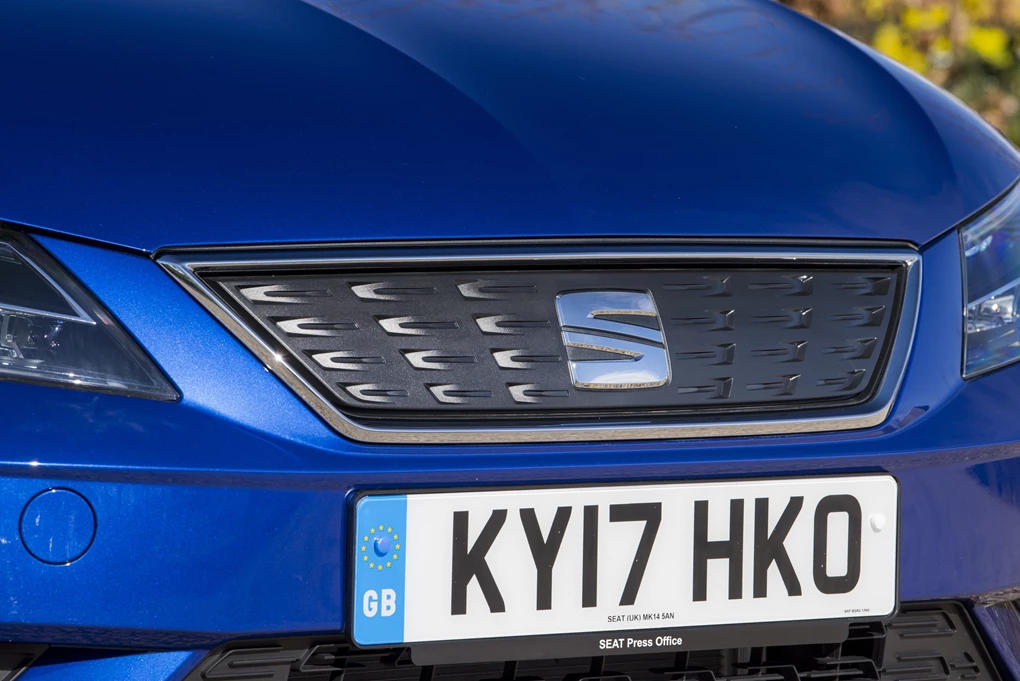
The new SEAT Leon starts from £17,455, making it slightly cheaper than rivals like the Volkswagen Golf, Ford Focus and around on par with the Renault Megane, while the range-topping XCELLENCE trim is priced from £22,000.
In terms of efficiency, SEAT says that the 148bhp 2.0-litre TDI engine can return up to 64.2mpg with 112g/km of CO2. We didn’t quite reach that in the week that we had the car on test, but in fairness we used the Leon primarily for short-distance urban driving, which will always see efficiency take a hit.
Verdict
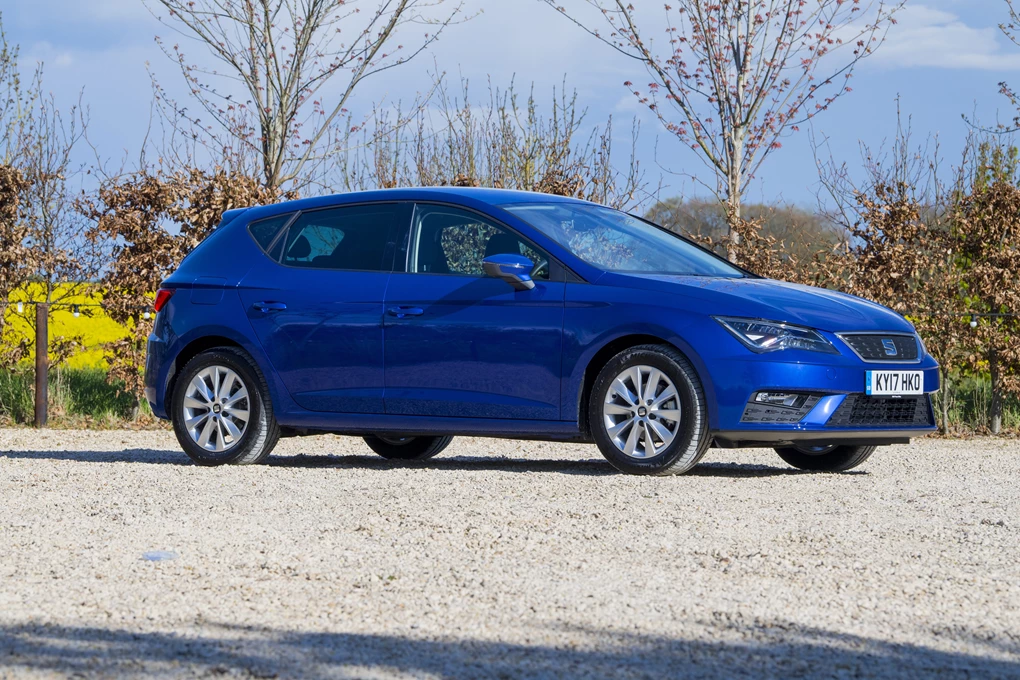
Traditionally, the SEAT Leon has always been pitched as a more cost-effective alternative to the Golf, but while it is better value we’d argue that it’s also better looking and better to drive as well, at least according to our own personal tastes.
It won’t be everyone’s cup of tea, particularly given that it’s not quite as refined or as comfortable as some of its rivals, but with its mix of great value, entertaining driving dynamics and style, for those who want something a bit more exciting than the likes of a Golf or a Focus we reckon it’s one of the smartest choices on the market.


